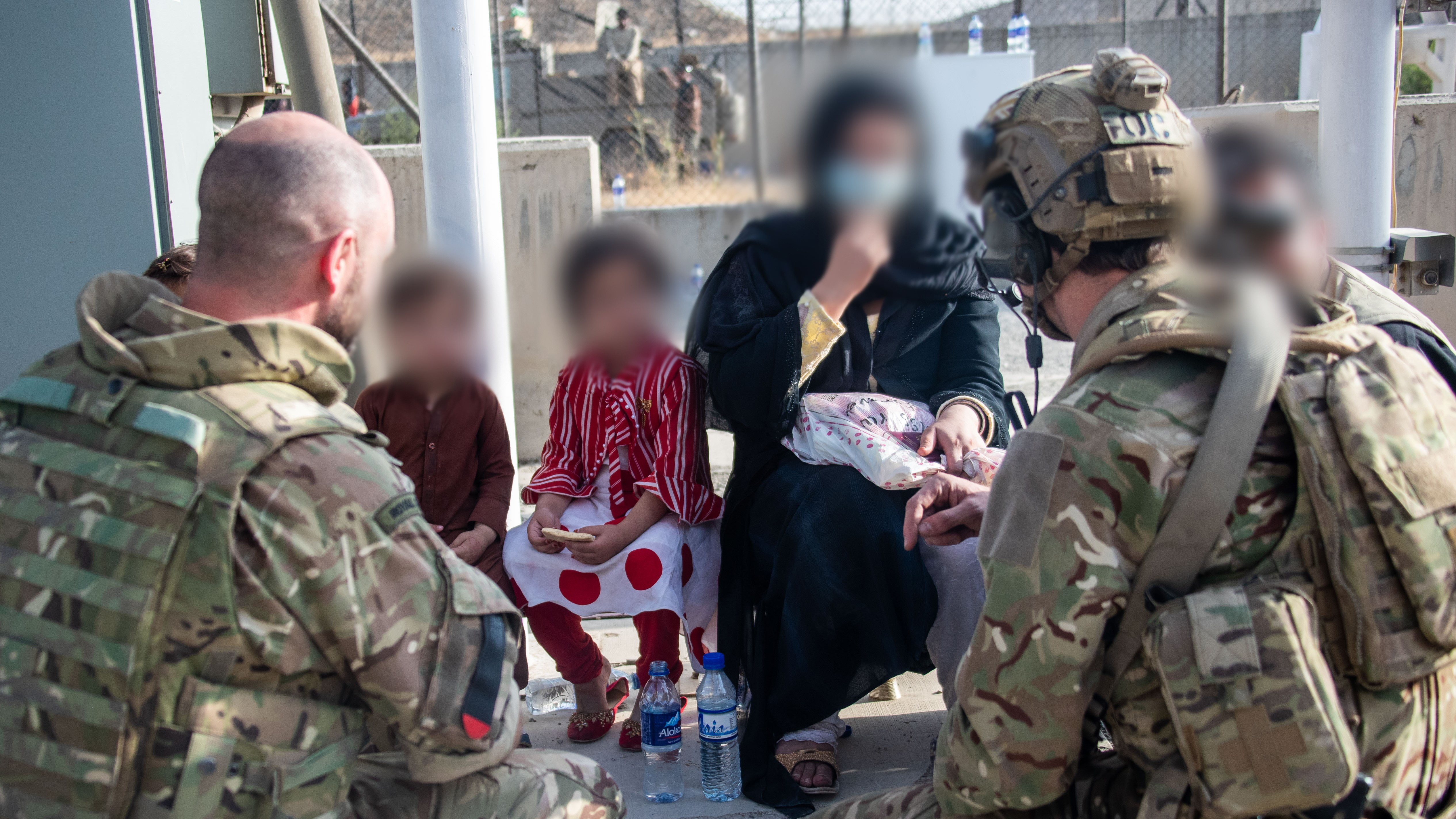
Service personnel left with 'moral injury' after Afghanistan withdrawal

Armed Forces personnel who assisted with the Afghanistan withdrawal may be suffering from "moral injury" on top of post-traumatic stress.
Professor Walter Busuttil, director of research at veterans' mental health charity Combat Stress, has described moral injury as when service personnel may feel a "personal dilemma" when carrying out commands they have been given.
Prof Busuttil made the comments in a documentary called Evacuation, which is produced by Channel 4 and follows the efforts by the military, Border Force and the Foreign Office to help 15,000 people escape Kabul during the allied withdrawal in August 2021 as the Taliban took the country in a lightning offensive.
The documentary sees service personnel speak about not feeling proud of some of their actions during Operation Pitting.
Especially when having to turn away people who did not qualify for UK support and evacuation.
Charity Combat Stress has added that the heavy media coverage of the situation in Afghanistan during the evacuation also triggered post-traumatic stress disorder among veterans.
Prof Busuttil, who served in the RAF, said: "The problem with moral injury is that we feel a lot of shame, guilt, betrayal, and it is a kind of transgression of our innate principles.
"Moral injury is not actually a mental illness but it reflects the dilemma in relation to the challenge we have, if you like, to go against our own moral code and moral ethics, perhaps even our religion.
"It is not a mental illness but it can exist with a mental illness."
Diana Bird, a Royal Air Force Police squadron leader, told the documentary makers that she was still "coming to terms" with her part in the operation.
Reverend Richard Meikle, chaplain to the 2nd Battalion, Parachute Regiment, admitted he felt "changed" by the experience in Afghanistan.
Prof Busuttil said these sorts of reactions were not unusual among veterans he had treated, saying: "A lot of my patients have said to me, 'We feel really upset'.
"They felt not only was this a waste of time… but they felt let down by the manner of the withdrawal."
If you or someone you know needs support at this time, details about support available can be found on our website.









